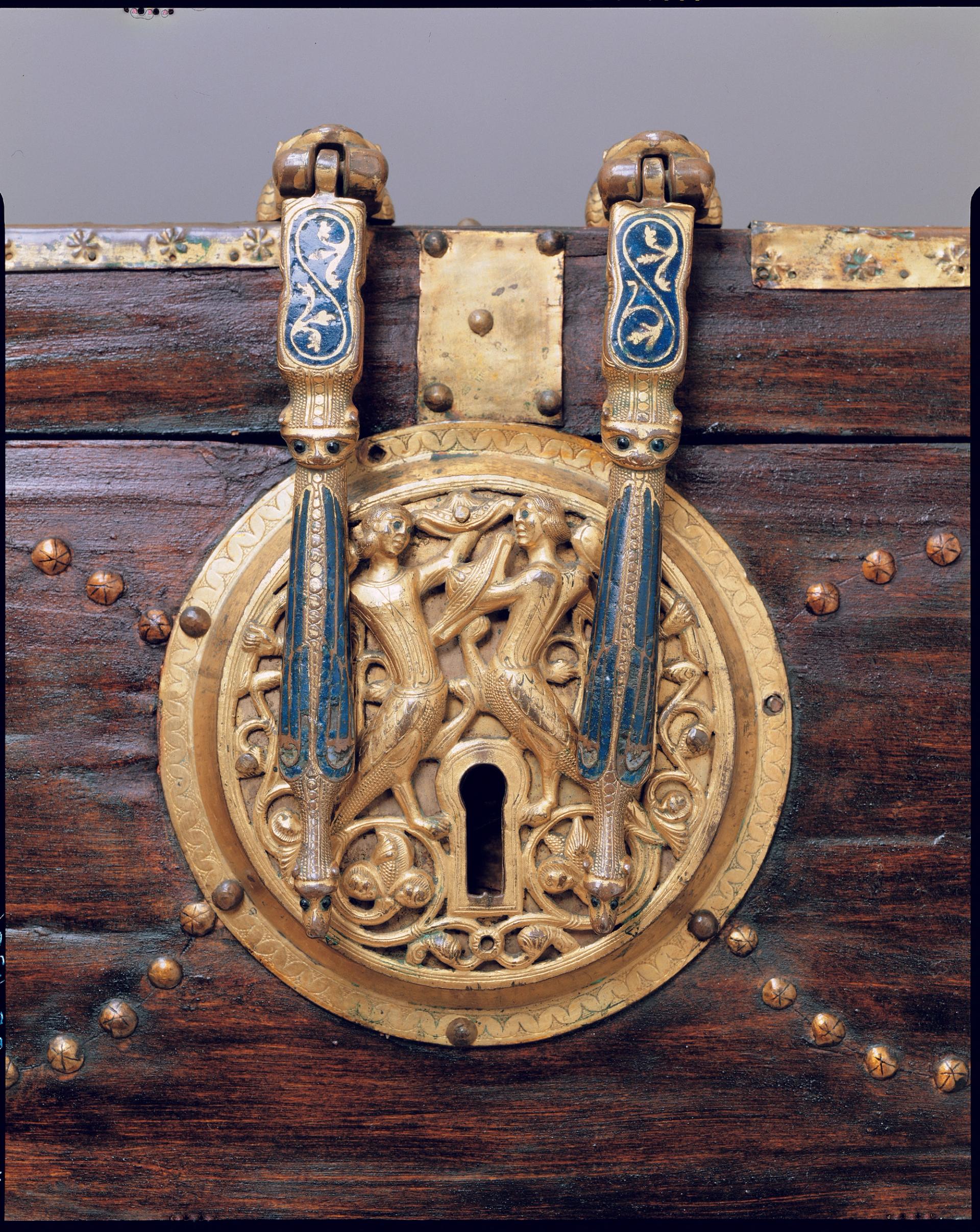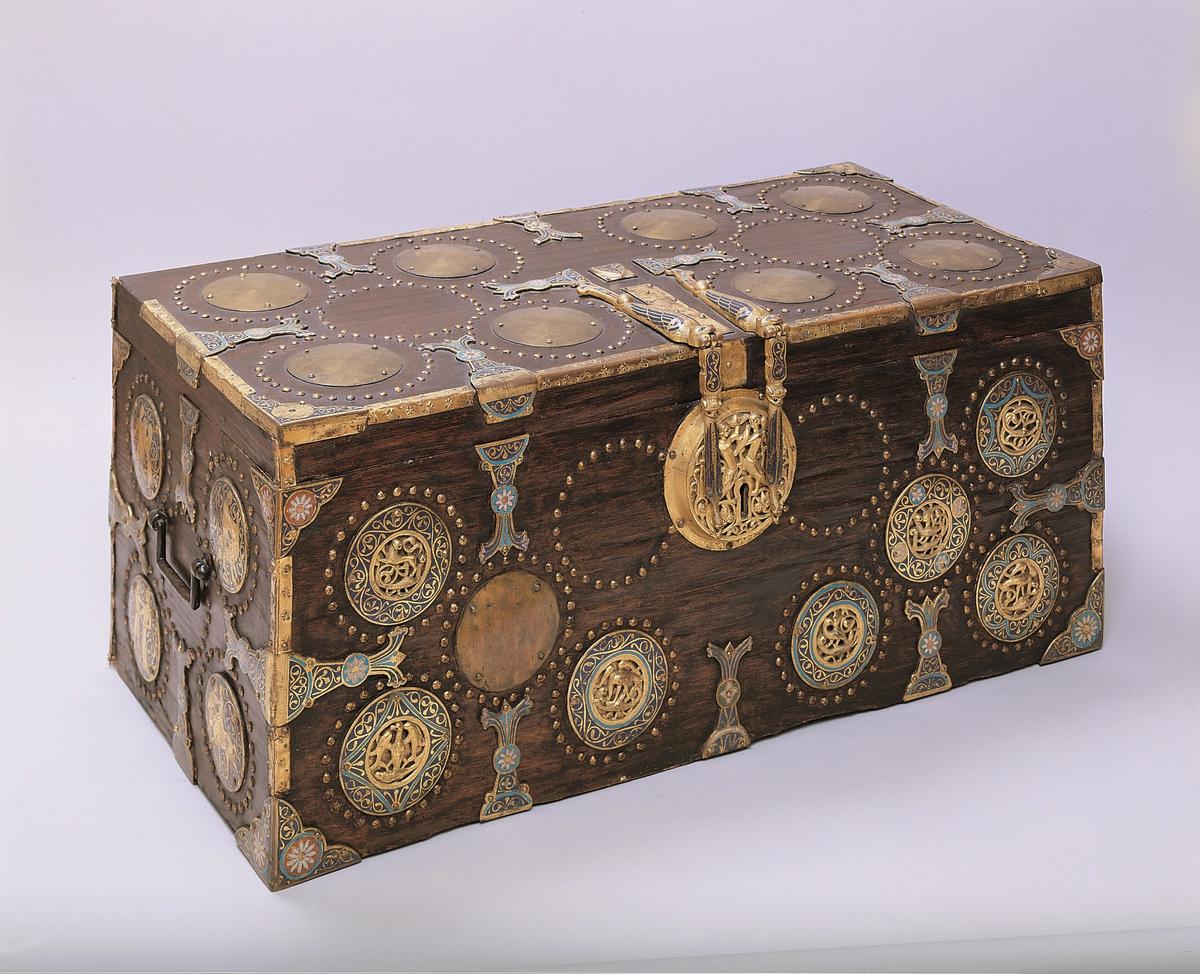Does €10,000 each for five enamelled brackets sound expensive? Not really, when you know that they are the missing pieces of a 13th-century casket that is one of the most important objects in the collection of Turin’s Palazzo Madama museum. It has launched a crowdfunding appeal in Italy to raise the €50,000 needed to acquire the set from a French art dealer by the end of the year.
This large wooden chest is studded with fine enamels dating from around 1220-25 and it is exceptional, not only because of its rarity, but because it belonged to the Henry Kissinger of his day, an Italian cardinal who turned out to play a major role in the history of England.
Guala Bicchieri (around 1160-1227) was the trusted ambassador of the then most powerful man in western Christendom, Pope Innocent III, who was obsessed with the idea of reconquering Jerusalem from Muslim control. To make this happen, he had to persuade kings, princes and nobles to stop fighting each other and join his crusade instead. Bicchieri was his top emissary, endowed with full powers, including the nuclear option, excommunication.

A detail showing the lock of the chest
Born in Vercelli, northwest Italy, Bicchieri studied law, was ordained a priest and rapidly proved his diplomatic skills. Made a cardinal, he was sent to the courts of the kings of France and England and, later, Holy Roman Emperor Frederick II. He negotiated peace between the first two, pacified the rebellious English barons, calmed the turmoils of the English church, and for two years acted as regent to the boy king Henry III. All this in just two years as papal legate in England, 1216-18.
More remarkable still is the fact that Magna Carta, widely considered the foundation of British and American democracy, would have remained a dead letter had it not been for him. The much-celebrated original 1215 version was actually annulled by Innocent III at the request of King John. In 1216, however, Bicchieri and his co-regent, the knight William Marshall, edited it to make it acceptable to all parties, and it was this draft, promulgated in 1217, that led to the gradual curtailment of the monarchy’s powers in favour of the rule of law.
Bicchieri returned to Vercelli laden with gold and in 1219 founded the abbey of Sant’Andrea, financed with a gift from Henry III of revenues from St Andrew’s church in Chesterton, Cambridge.
A collector and bibliophile, he purchased his ornate casket from Limoges, France, which produced enamelled objects for export all over Medieval Europe. Housing Bicchieri’s bones after his death, it had a peaceful existence in the abbey for 500 years until Napoleon’s army invaded. To prevent it being looted, it was walled up, rediscovered in 1824 and then presented to the architect who was restoring the church.
In 1999, when the Metropolitan Museum of Art and the Louvre both tried to acquire the chest, the Italian authorities placed an emergency export ban on it. Palazzo Madama finally bought it in 2004 for €1.75m, with extraordinary contributions from the city of Turin and the Piedmont regional government.
More than €35,000 still needs to be raised to help the museum meet its crowdfunding target and buy back the casket’s missing brackets. Anyone wishing to support this appropriately democratic campaign—given Guala Bicchieri’s contribution to Magna Carta—can donate on the Rete del Dono platform. Contributions start at €15.


